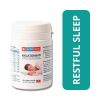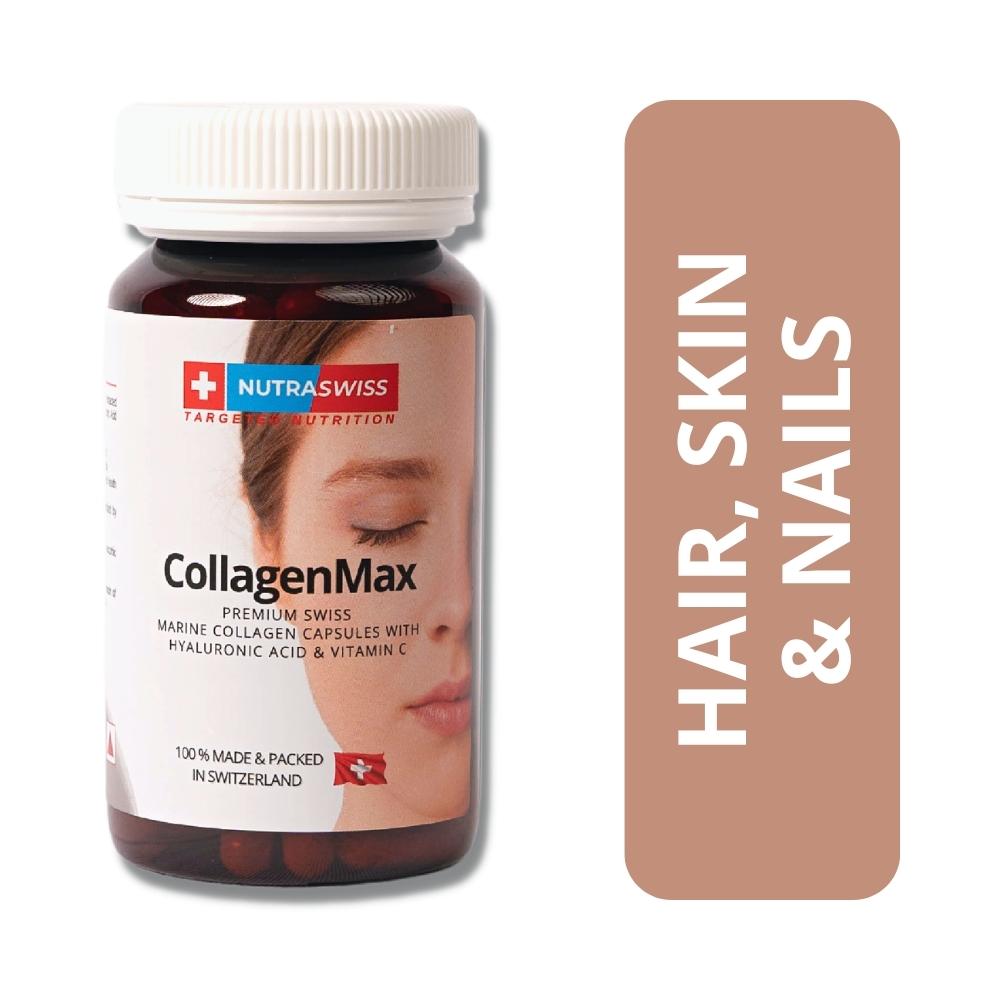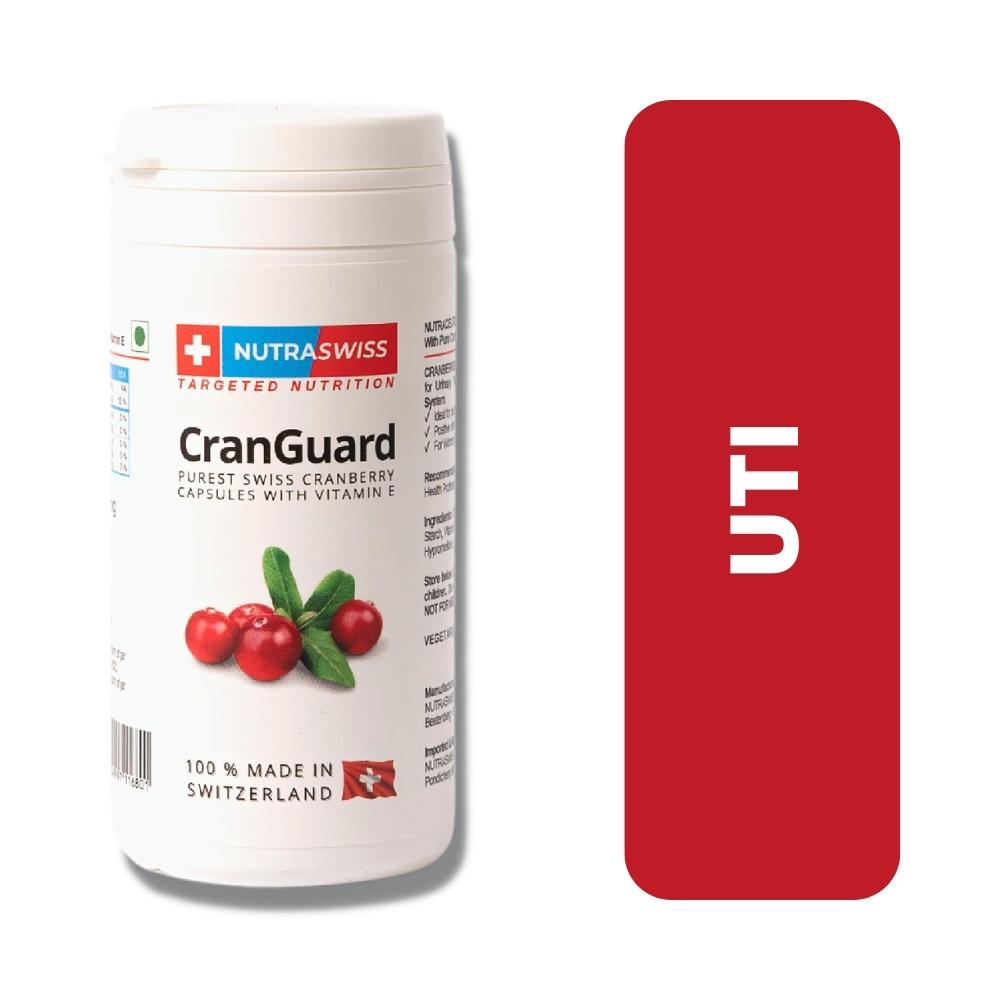Q10 Plus® Capsules for Heart Health
₹ 2409 excl. GST
Premium Swiss Q10 Capsules (Pack Size: 60)
Available on backorder
PREMIUM SWISS COENZYME Q10 CAPSULES WITH VITAMINS C & E AND GRAPE SEED EXTRACT
100 % MADE & PACKED IN SWITZERLAND!
_____________________
Q10 Plus® provides an effective combination of vital substances with a positive and supportive effect on Heart, Veins & Arteries.
- To improve Blood Circulation
- Positive effect on Heart Muscle Cells
- Ideal support for the Cardiovascular System
Recommended dosage: 2 Capsules daily or as prescribed by Health Professionals
Main Ingredients: Coenzyme Q10, Grape Skin Extract (Vitis vinifera), Fermented Grape Powder, Vitamin C, Grapevine Leaves (Vitis vinifera), Grape Seed Extract (Vitis vinifera), Vitamin E
Disclaimers: Store below 25 °C in a dry, dark place and out of reach of children.
VEGETARIAN • LACTOSE-FREE • GLUTEN-FREE
60 Capsules x 275 mg | 16.5 g net
_____________________
CoQ10 is a fat-soluble, vitamin-like compound with many health benefits. It is involved in the production of cellular energy and serves as an antioxidant. It is helpful in the preservation of cells and the prevention and treatment of chronic diseases. Q10 has been shown to help improve heart health, blood sugar regulation and it assists in the prevention and treatment of cancer and reduces the frequency of migraines.
There is mounting evidence that Q10 can lower blood pressure and treat heart failure and other heart conditions, helping to improve symptoms and lessen future cardiac risks when combined with a healthy diet and regular exercise.
_____________________
Benefits of Coenzyme Q10 (CoQ10)
Coenzyme Q10, also known as CoQ10, is a compound that helps generate energy in your cells. Your body produces CoQ10 naturally, but its production tends to decrease with age. Fortunately, you can also get CoQ10 through supplements or foods. Health conditions like heart disease, brain disorders, diabetes, and cancer have been linked to low levels of CoQ10. It is not clear whether low levels of CoQ10 cause these diseases or are a result of them. One thing is for certain: plenty of research has revealed CoQ10’s wide range of health benefits.
What Is CoQ10?
CoQ10 is a compound made by your body and stored in the mitochondria of your cells. The mitochondria are in charge of producing energy. They also protect cells from oxidative damage and disease-causing bacteria or viruses. CoQ10 production decreases as you age. Thus, older people seem to be deficient in this compound. Some other causes of CoQ10 deficiency include:
- Nutritional deficiencies, such as vitamin B6 deficiency
- Genetic defects in CoQ10 synthesis or utilization
- Increased demands by tissues as a consequence of disease
- Mitochondrial diseases
- Oxidative stress due to aging
- Side effects of statin treatments
Research has shown that CoQ10 plays several key roles in your body. One of its primary functions is to help generate energy in your cells. It’s involved in making adenosine triphosphate (ATP), which is involved in energy transfer within cells. Its other crucial role is to serve as an antioxidant and protect cells from oxidative damage. Excessive amounts of free radicals lead to oxidative damage, which can interfere with regular cell functioning. This is known to cause many health conditions. Given that ATP is used to carry out all the body’s functions and oxidative damage is destructive to cells, it is not surprising that some chronic diseases have been linked to low levels of CoQ10. CoQ10 is present in every cell of your body. However, the highest concentrations are found in organs with the greatest energy demands, such as the heart, kidneys, lungs and liver.
It May Help Treat Heart Failure
Heart failure is often a consequence of other heart conditions, such as coronary artery disease or high blood pressure. These conditions can lead to increased oxidative damage and inflammation of the veins and arteries. Heart failure occurs when these problems affect the heart to the point that it is unable to regularly contract, relax or pump blood through the body. To make matters worse, some treatments for heart failure have undesirable side effects, such as low blood pressure, while others could even further reduce CoQ10 levels. In a study of 420 people with heart failure, treatment with CoQ10 for two years improved their symptoms and reduced their risk of dying from heart problems. Also, another study treated 641 people with CoQ10 or a placebo for a year. At the end of the study, those in the CoQ10 group had been hospitalized less frequently for worsening heart failure and had fewer serious complications. It seems that treatment with CoQ10 could assist with restoring optimal levels of energy production, reduce oxidative damage and improve heart function, all of which can aid the treatment of heart failure.
It Could Help with Fertility
Female fertility decreases with age due to a decline in the number and quality of available eggs.
CoQ10 is directly involved in this process. As you age, CoQ10 production slows, making the body less effective at protecting the eggs from oxidative damage. Supplementing with CoQ10 seems to help and may even reverse this age-related decline in egg quality and quantity. Similarly, male sperm is susceptible to the effects of oxidative damage, which may result in reduced sperm count, poor sperm quality and infertility. Several studies have concluded that supplementing with CoQ10 may improve sperm quality, activity and concentration by increasing antioxidant protection.
It Might Help Keep Your Skin Young
Your skin is the largest organ in your body, and it’s widely exposed to damaging agents that contribute to aging. These agents can be internal or external. Some internal damaging factors include cellular damage and hormonal imbalances. External factors include environmental agents, such as UV rays. Harmful elements can lead to reduced skin moisture and protection from environmental aggressors, as well as the thinning of the layers of the skin. Applying CoQ10 directly to the skin can reduce the damage from internal and external agents by increasing energy production in skin cells and promoting antioxidant protection. In fact, CoQ10 applied directly to the skin has been shown to reduce oxidative damage caused by UV rays and even decrease the depth of wrinkles. Lastly, people with low levels of CoQ10 seems to be more likely to develop skin cancer.
It Could Reduce Headaches
Abnormal mitochondrial function can lead to an increased calcium uptake by the cells, the excessive production of free radicals and decreased antioxidant protection. This can result in low energy in the brain cells and even migraines. Since CoQ10 lives mainly in the mitochondria of the cells, it has been shown to improve mitochondrial function and help decrease the inflammation that may occur during migraines. In fact, a study showed that supplementing with CoQ10 was three times more likely than a placebo to reduce the number of migraines in 42 people. Additionally, CoQ10 deficiency has been observed in people suffering from migraines. One larger study showed that 1,550 people with low CoQ10 levels experienced fewer and less severe headaches after treatment with CoQ10. What’s more, it seems that CoQ10 not only helps treat migraines but may also prevent them.
It Could Help with Exercise Performance
Oxidative stress can affect muscle function, and thus, exercise performance. Similarly, abnormal mitochondrial function can reduce muscle energy, making it hard for muscles to contract efficiently and sustain exercise. CoQ10 can help exercise performance by decreasing oxidative stress in the cells and improving mitochondrial functions. In fact, one study investigated the effects of CoQ10 on physical activity. Those supplementing with 1,200 mg of CoQ10 per day for 60 days showed decreased oxidative stress. Moreover, supplementing with CoQ10 can help increase power during exercise and reduce fatigue, both of which can improve exercise performance.
It Could Help with Diabetes
Oxidative stress can induce cell damage. This can result in metabolic diseases like diabetes.
Abnormal mitochondrial function has also been linked to insulin resistance. CoQ10 has been shown to improve insulin sensitivity and regulate blood sugar levels. Supplementing with CoQ10 might also help increase CoQ10 concentrations in the blood by up to three times in people with diabetes who typically show low levels of this compound. Also, one study had people with type 2 diabetes supplement with CoQ10 for 12 weeks. Doing so significantly reduced fasting blood sugar levels and hemoglobin A1C, which is the average of blood sugar levels over the past two to three months. Lastly, CoQ10 might help prevent diabetes by stimulating the breakdown of fats and reducing the accumulation of fat cells that could lead to obesity or type 2 diabetes.
It Might Play a Role in Cancer Prevention
Oxidative stress is known to cause cell damage and affect their function. If your body is unable to effectively fight oxidative damage, the structure of your cells can become damaged, possibly increasing the risk of cancer. CoQ10 may protect cells from oxidative stress and promote cellular energy production, promoting their health and survival. Interestingly, cancer patients have been shown to have lower levels of CoQ10. Low levels of CoQ10 have been associated with up to a 53.3% higher risk of cancer and indicate a poor prognosis for various types of cancer. What’s more, one study also suggested that supplementing with CoQ10 may help reduce the chance of cancer recurrence.
It Is Good for the Brain
Mitochondria are the main energy generators of brain cells. Mitochondrial function tends to decrease with age. Total mitochondrial dysfunction can lead to the death of brain cells and diseases like Alzheimer’s and Parkinson’s. Unfortunately, the brain is very susceptible to oxidative damage due to its high fatty acid content and its high demand for oxygen. This oxidative damage enhances the production of harmful compounds that could affect memory, cognition and physical functions. CoQ10 may reduce these harmful compounds, possibly slowing the progression of Alzheimer’s and Parkinson’s disease.
CoQ10 Could Protect the Lungs
Of all your organs, your lungs have the most contact with oxygen. This makes them very susceptible to oxidative damage. Increased oxidative damage in the lungs and poor antioxidant protection, including low levels of CoQ10, can result in lung diseases like asthma and chronic obstructive pulmonary disease (COPD). Furthermore, it has been shown that people suffering from these conditions present lower levels of CoQ10. A study demonstrated that supplementing with CoQ10 reduced inflammation in individuals who had asthma, as well as their need for steroid medications to treat it. Another study showed improvements in exercise performance in those suffering from COPD. This was observed through better tissue oxygenation and heart rate after supplementing with CoQ10.
Dosage & Side Effects
CoQ10 comes in two different forms — ubiquinol and ubiquinone. Ubiquinol accounts for 90% of the CoQ10 in the blood and is the most absorbable form. Thus, it’s recommended to choose from supplements containing the ubiquinol form. The standard dose of CoQ10 ranges from 90 mg to 200 mg per day. Doses up to 500 mg seem well tolerated, and several studies have used even higher doses without any serious side effects. Because CoQ10 is a fat-soluble compound, its absorption is slow and limited. However, taking CoQ10 supplements with food can help your body absorb it up to three times faster than taking it without food. Additionally, some products offer a solubilized form of CoQ10, or a combination of CoQ10 and oils, to improve its absorption. Your body does not store CoQ10. Therefore, its continued use is recommended to see its benefits. Supplementing with CoQ10 appears to be well tolerated by humans and have low toxicity. In fact, participants in some studies showed no major side effects taking daily doses of 1,200 mg for 16 months.
The Bottom Line
CoQ10 is a fat-soluble, vitamin-like compound that seems to have many health benefits. It is involved in the production of cellular energy and serves as an antioxidant. These properties make it helpful in the preservation of cells and the prevention and treatment of some chronic diseases. CoQ10 has been shown to help improve heart health and blood sugar regulation, assist in the prevention and treatment of cancer and reduce the frequency of migraines. It could also reduce the oxidative damage that leads to muscle fatigue, skin damage and brain and lung diseases. CoQ10 can be found as a supplement that seems to be well tolerated. Additionally, it’s found in some foods like animal organs, vegetables and legumes. Since CoQ10 production decreases with age, adults of every age could benefit from more of it. Whether you consume more foods with a high CoQ10 content or take supplements, CoQ10 could benefit your health.
_____________________
Manufactured & Packed in Switzerland by:
NUTRASWISS GmbH • Schmockenstrasse 129 • 3808 Beatenberg • Switzerland • info@nutraswiss.com
3 reviews for Q10 Plus® Capsules for Heart Health
Add a review Cancel reply
Related products
Premium Swiss Probiotic Capsules (Pack Size: 60)
Premium Swiss Marine Collagen Capsules (Pack Size: 120)
Premium Swiss Melatonin Capsules (Pack Size: 30)
Premium Swiss Saw Palmetto Extract Capsules (Pack Size: 60)
Premium Swiss Ginseng & Ginkgo Capsules (Pack Size: 60)
Premium Swiss Cranberry Capsules (Pack Size: 60)
Premium Swiss Lutein Capsules (Pack Size: 100)













tlover tonet –
Fantastic website. Plenty of helpful info here. I am sending it to some friends ans also sharing in delicious. And obviously, thank you in your effort!
Suplementy dzieci –
Your posts are always so well-researched. I learn something new every time!
Meenakshi R –
I bought this to help with heart health as ive recently been diagnosed with high cholesterol. I had also researched that it was helpful for brain function and thought it might help my vestibular neuritis. I really like that theyre small and easy to take. It’s a bit early to say how well I’m doing on them but I will keep taking them because of the researched health benefits. Delivery was super fast!!